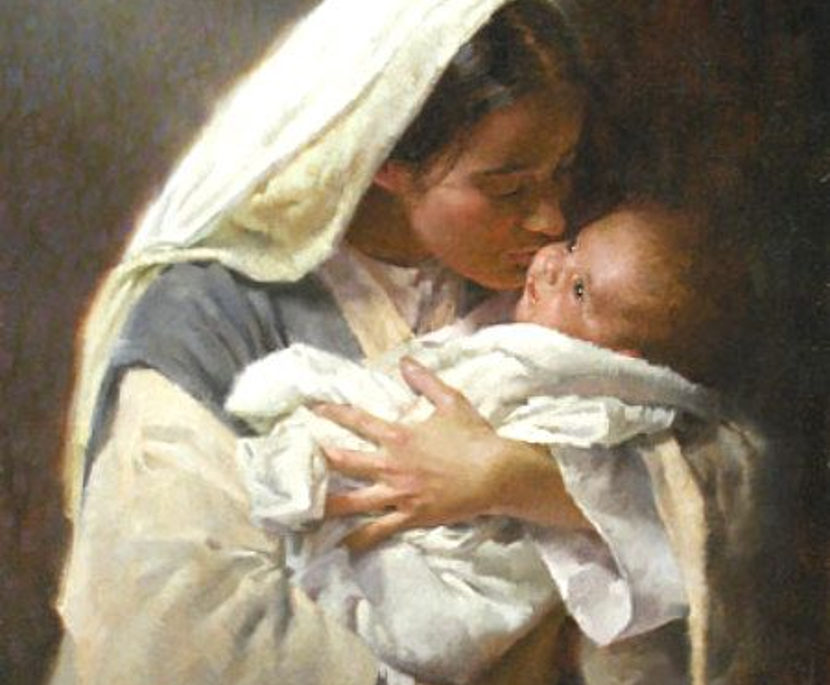The Gospel of Luke, chapter 1
The religious imagination of the human race has always had a special place for the feminine. The pantheons of ancient Greece and Rome, Egypt and India, were peopled not only by gods, but goddesses, as well. We may smile as we muse upon the apparent naiveté of these “primitive” peoples. The fact is that their basic religious instinct was quite sound. They knew that the feminine told them something important about God, something that deserved both honor and attention. Their attitude should be no surprise to us since we have so often heard these words of Genesis:
“Let us make man in our image. Male and female He created them.”
The image of God that emerges from Scripture is not merely that of father, creator, sovereign, judge. It is also that of mother and lover (read the Canticle of Canticles). Mary, the mother of Jesus, reminds us of this side of God. And that is one reason she has always been so precious to the followers of Christ.
Evidence of devotion to the Virgin is very ancient. Indeed, a second century parchment bears witness to it. Special prayers like the rosary and the Memorare have been crafted especially for her. In the Hail Mary, the prayer we know best, we ask that she “pray for us sinners, now, and at the hour of our death.” For centuries, Christians have instinctively turned to Mary in a crisis, perhaps because she had so many of her own, from the moment that Joseph decided to “put her away,” to the hour that Jesus lay dead in her arms.
Mary’s courage is undeniable as she faced the sword that would pierce her heart. But her tender love and quiet trust are even more appealing. What is most beautiful about Mary is her quiet trust in the Lord, and her humble way of doing God’s will without any human fanfare or exaggerated self-agrandisement. Her very being spoke of her commitment to God. She says very little for her actions speak louder than words. What a contrast is Mary to the constant drumbeat today of those who proclaim their greatness and importance so that they can lord it over others.
Mary is the most powerful example of the embodiment of faith in an ordinary human being. Jesus, as we well know, personifies faith since he is the Son of God, but it was Mary’s faith, her openness to God’s will (“Thy will be done”), that enabled Jesus to come into her life and into our lives as well.
Hail Mary, Full of Grace. Pray for us who have recourse to Thee.
Fr. Hugh Duffy








Recent Comments